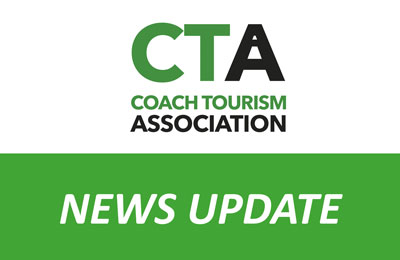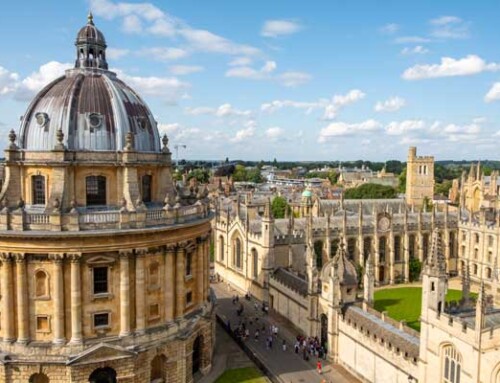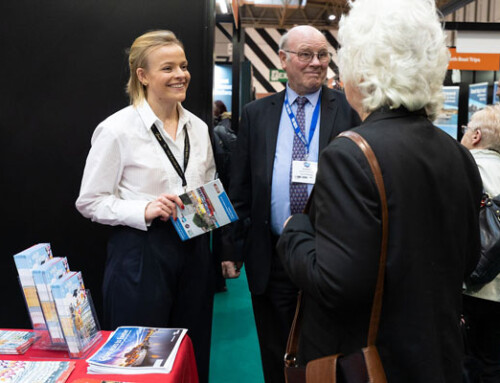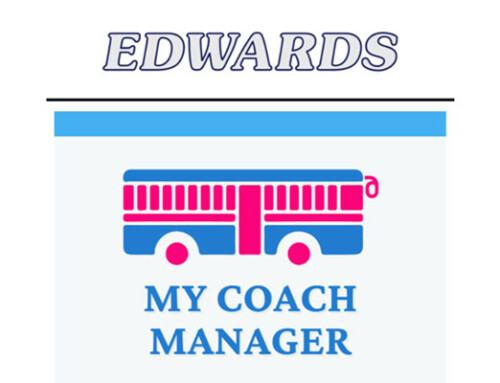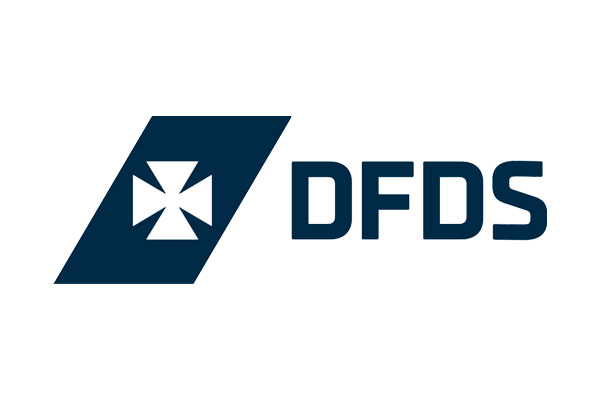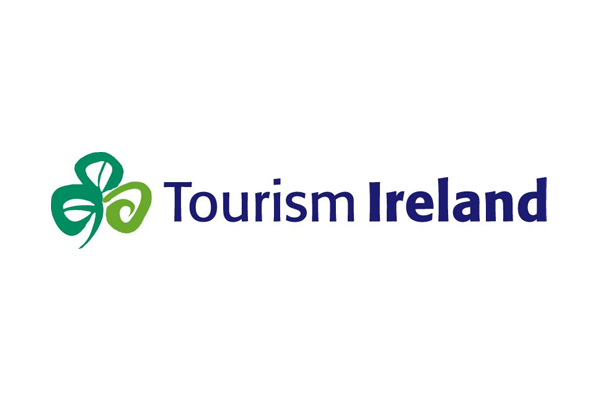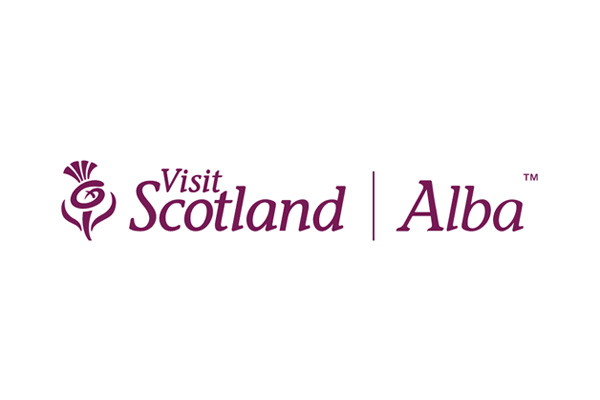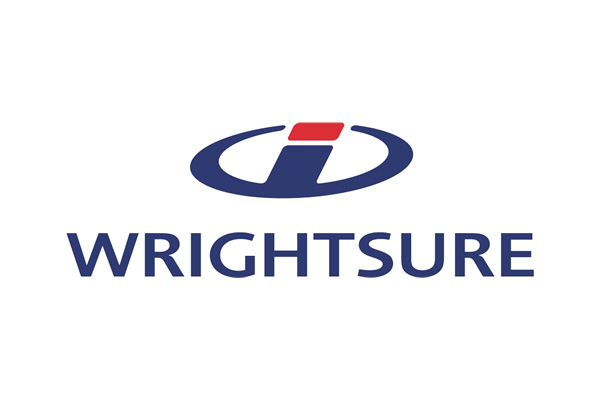COVID-19 Updates – week commencing 11/05/20
More updates of developments from the government and various links to interpretation and guidance.
Go to date:
11 May 2020 …
Tourism Alliance updates:
How to Treat Certain Expenses and Benefits Provided to Employees During Coronavirus
HMRC has produced guidance on the treatment of taxable expenses and benefits when they are paid to employees because of coronavirus and how to report them. The guidance covers:
-
- Living accommodation
- Volunteer fuel and mileage costs
- Paying or refunding transport costs
- Free or subsidised meals
- Company car ‘availability’
- Salary sacrifice
- Employer provided loans
- Employees working from home
Guidance for Businesses Seeking to Help Voluntary, Community, and Social Enterprise Organisations
DCMS has produced guidance as to how businesses can offer services, funds and volunteers to charities. The guidance comes in three part depending on whether businesses are able to provide:
-
- skills, services, or assets
- funds
- volunteers who have been furloughed
Business Rates Revaluation Postponed
In order to prevent uncertainty over future costs to businesses, the Government has announced that the planned business rate revaluation will no longer take place in 2021. The government is, however, continuing its work on the fundamental review of business rates, with the key aims of reducing the overall burden on businesses, improving the current business rates system, and the call for evidence associated with this review will be published in the coming months.
https://www.gov.uk/government/news/business-rates-revaluation-postponed
PPE Requirements in Your Sector
The CBI is compiling data on the PPE requirements of different businesses so that it can feed this into Government and is asking Tourism Alliance members to complete the following the survey on behalf of your members/sector. Please estimate an answer where you do not have available information.
The survey needs to be completed by Wednesday 13th and is accessed through this link
CBI Webinar for SMEs
The CBI is also undertaking a webinar to provide information and advice targeted to SMEs on May 11th (3:30pm)
The webinar will include:
-
- Latest update on finance issues for SMEs – loans and business grants
- Guidance on how to prepare successful loan applications, including what supporting information to provide, how to evidence profitability, evidencing the impact of the coronavirus on profitability and the timelines for response and receiving funds
- Guidance on the key employment issues.
You can sign-up on the following link
VisitBritain update:
Helping the tourism industry recover from COVID-19
Proposals for government
On behalf of the tourism industry, we have sent a paper to the Cabinet Office detailing how government can help the tourism industry recover from COVID-19.
The paper is a result of a rapid and extensive consultation we conducted across the sector with major industry players who were instrumental in the design of the Tourism Sector Deal, including representatives of Destination Management Organisations (DMOs), businesses, trade bodies and more. We are grateful for the time taken by everyone to share their thoughts and in many cases their own research with us.
After setting out the impact so far and our current economic modelling on the likely impact of continued lockdown or social distancing, this paper proposes actions and recommendations for government across four workstreams:
1. Timelines
Understanding the lead-in times needed for businesses to get up and running, helping to accurately phase the lockdown withdrawal.
On timelines, the industry needs:
- A standards-led approach which allows businesses and destinations to assess their ability to reopen under clear criteria.
- Clear guidance to consumers about what it is safe to do and when – and reassurance that travel is socially responsible and encouraged
- As much notice as possible of the reopening date so that businesses can prepare.
- Recognition that domestic will be much faster to recover than international or business travel, with longer term financial support needed for the industry.
2. People
Considering what policies need to be in place to best protect jobs, retain skills, and keep our colleagues and customers safe, as restrictions are lifted.
To help staff back to work and keep them and visitors safe, the industry needs:
- Extension of the furlough scheme in recognition that many sites will not be able to operate economically under continued social distancing, the seasonal nature of tourism and its dependence on customer demand.
- Development and recognition of a ‘stay safe’ charter mark.
- Access to apprenticeship levy money to fund retraining in social distancing measures such as hygiene and adapted operating requirements.
- Clear guidance on how best to protect staff and customers through adaptations to sites and use of PPE.
- Consideration of the other parts of the economy needed for people to return to work, such as public transport and schools.
3. Regulation
Establish what pressures can be lifted to aid the recovery of businesses, and adapt to new ways of working and travelling.
To make doing business easier in the recovery, industry needs:
- A rent holiday for the tenants and landlords of restaurants and other premises.
- Relaxation of planning restrictions that limit the opening season for some businesses, or limit where food and drink can be served/consumed.
- Amendents to the Package Travel Regulation so that a ‘package’ must include transport to incentivise domestic trips.
- Recognition that now is not the time to impose additional burdens or tax obligations on the visitor economy.
- Consideration of an additional bank holiday, or moving the later May bank holiday to October half term to stimulate demand when it is possible to travel.
- International work by government to try and build global consensus on how international businesses need to operate.
4. Long term future
Using the Sector Deal outcomes to prepare the sector for a new era of travel and to support in the levelling up of communities across the UK – through data sharing, product development, and reducing the outbound deficit.
To secure the long term health of the visitor economy, industry needs:
- Acceleration and expansion of the ‘tourism zones’ proposed in the Sector Deal to support tourism’s contribution to the recovery, as part of the government’s ongoing ambition to ‘level up’ poorer parts of the country.
- Seed funding of the Tourism Data Hub to build information that will support the recovery, especially for SMEs.
- To use the crisis as an opportunity to drive innovation and improve productivity and boost the UK’s profile as a destination.
- Encouragement for travellers to holiday at home with a major marketing campaign focused on domestic travel.
- International visitor visas to be extended automatically to make it easier for them to take visits postponed due to the pandemic.
- To use the reset in consumer behaviour forced by lockdown to consider wider questions like sustainability and longer term consumer behaviour.
https://www.visitbritain.org/node/116699
12 May 2020 …
Tourism Alliance updates:
Government briefings on 12 May:
There have been several announcements by Government today please find a summary of the key points raised in the briefings and questions:
Business Secretary Alok Sharma, Sarah Albon (HSE), and Stephen Powis (NHS England) led today’s daily press conference at 17.00, he went over many of the announcements and guidance published today (see further details below). Sharma also reiterated that although people are now able to travel, they should not be staying over-night and the guidance reflects this.
A question was asked about those businesses such as hospitality who cannot operate economically, and how these businesses would contribute to the furlough scheme after August in this way. Sharma said that the measures set out today provide certainty and that the furlough scheme, bounce back loan, and CBILS were a significant support schemes. Later in the Q&A Sharma said that that The Government has supported the hospitality sector with various measures, and in order to avoid a second peak the hospitality sector will only reopen when it is safe to do so.
On aviation refund rights, Sharma said that refunds should be made within 14 days but that this sector was facing particular difficulties. He also noted the CMA investigation into this issue.
A briefing given by the Transport Secretary Grant Shapps today saw Lucy Powell call for cautious language around holidays, following the health minister’s comments earlier today. Shapps said that we know we are unable at the moment to take holiday as foreign office advice is to not travel, looking to the future he said ‘it will be a wait and see game’. The Transport secretary confirmed that people shouldn’t be travelling to Wales for their exercise, and said that there is a note in this guidance about how regulations might differ in the devolved nations.
A reduction in VAT on tourism was raised by Caroline Lucas, Sunak agreed that leisure and hospitality had been hardest hit and this is why they had received the most measures – business rates, loans/grants etc. It was confirmed that the SoS DCMS had been engaging in the sector. Following questions from the Isle of Wight and Delyn an industry taskforce to look at support for the hospitality, leisure and tourism sector (page 31/32) was mentioned.
There was also a call to replace the 14 day quarantine with tests on arrival, the Chancellor only confirmed that more detail on these measures would be published in due course.
Coronavirus Job Retention Scheme extended until October
The Chancellor Rishi Sunak today announced that the Job Retention Scheme would be extended until October. Until the end of July there will be no changes; however, from August to October there will be more flexibility to enable people to return to work part-time. More specific details around the changes will be made available by the end of May.
Self-Employment Income Support Scheme opens for applications tomorrow 13 May
The scheme will allow those who are self-employed to claim a taxable grant of 80% of their average monthly trading profits, paid out in a single instalment covering 3 months, and capped at £7,500 altogether. This is a temporary scheme, but it may be extended. Check if you are eligible to claim.
To make a claim you will need:
· Self Assessment UTR
· National Insurance number
· Government Gateway user ID and password
· Bank account number and sort code you want us to pay the grant into (only provide bank account details where a Bacs payment can be accepted)
When claiming you will have to confirm to HMRC that your business has been adversely affected by coronavirus.
Northern Ireland Executive have published their Coronavirus Recovery document
The ‘Approach to Decision Making’ sets out the approach that will be adopted to move out of lockdown. The guiding principles are:
-
- Controlling transmission – Progress on the path of recovery depends primarily on controlling the rate of transmission. A restriction or requirement should only be relaxed when there is a reasonable prospect of maintaining R at or below 1.
- Protecting healthcare capacity – The healthcare system should have sufficient capacity to treat Coronavirus patients while phasing in the reintroduction of usual health and care services.
- Necessity – A specific restriction or requirement should be retained only as long as it is considered necessary to prevent, protect against, control, or provide a public health response to the incidence or spread of Coronavirus.
- Proportionality – The detrimental impacts on health, society and the economy that can reasonably be attributed to the restriction or requirement should be tolerated only as long as the risks associated with withdrawal or modification are assessed to be more severe.
- Reliance on evidence – Proposals for change or retention of a restriction or requirement should be informed by the best available evidence and analysis.
CPT Operational Updates
CHANCELLOR EXTENDS FURLOUGH SCHEME UNTIL THE END OF OCTOBER
The Chancellor of the Exchequer, Rishi Sunak earlier today (12th May) announced that the Coronavirus Job Retention Scheme will be extended until the end of October 2020
Further details of how the scheme will operate, and of any changes to the scheme will be announced later
- Coronavirus Job Retention Scheme will continue until end of October
- there will be no changes to the current scheme until 31 July
- furloughed workers across UK will continue to receive 80% of their current salary, up to £2,500
- new flexibility will be introduced from 1 August which will include the possibility of employees working on a part time basis
The Chancellor also indicated that after 1 August employers may be expected to share the cost of furlough pay
Further details of what this means in practice will be released later
CPT will continue to monitor this, and update members where appropriate
BASIC CLEANING ADVICE
The following is based on PHE, NHS and WHO guidance
HOW LONG CAN THE VIRUS SURVIVE ON SURFACES
According to the World Health Organisation, studies have shown that the SARS-CoV-2 virus can survive for up to 72 hours on plastic and stainless steel, less than 4 hours on copper and less than 24 hours on cardboard.
The infection risk from coronavirus following contamination of a surface decreases over time, but it is not yet clear at what point there is no risk
HOW THE VIRUS SPREADS
When someone who has COVID-19 coughs or exhales they release droplets of infected fluid. Most of these droplets fall on nearby surfaces and objects, such as desks, tables or telephones. People could catch COVID-19 by touching contaminated surfaces or objects, and then touching their eyes, nose, or mouth
The risk of someone becoming infected depends on many factors, including:
- the type of surfaces contaminated
- the amount of virus shed from the individual
- the time the individual spent in the area
- the time since the individual was last in the area
PERSONAL PROTECTIVE EQUIPMENT (PPE)
Suitable PPE should be worn, the minimum should be disposable gloves and apron
Hands should be washed with soap and water after all PPE has been removed
If an initial risk assessment of the area to be cleaned suggests that a higher level of virus may be present such as visible contamination with body fluids, then additional PPE to protect the cleaner’s eyes, mouth and nose will be necessary
CLEANING AND DISINFECTION
All surfaces that someone may have come into contact with should be cleaned and disinfected, including especially:
- objects which are visibly contaminated with body fluids
- all potentially contaminated high-contact areas in vehicles such as the steering wheel, grab-rails, bell pushes, ticket machines, armrests, overhead racks or seat belts and in offices such as door handles, light switches, telephones, or PC mice and keyboards
Advice from Public Health England for PSV operations is that they consider that when different drivers are allocated the same vehicle during the day, the greatest risk from contamination will occur when the drivers changeover. It is very important that the cab area and all switchgear is cleaned thoroughly when drivers changeover
Many disinfectants are active against an enveloped virus including commonly used hospital disinfectants, and also some off the shelf disinfectants.
You should check the data sheet or label to ensure the disinfectant used meets the guidelines
GUIDELINES FOR CLEANING:
NHS guidelines for cleaning in a non-healthcare setting is to use disposable cloths or paper roll and disposable mop heads, to clean and disinfect all hard surfaces and floors following one of the options below:
- use either a combined detergent disinfectant solution at a dilution of 1000 parts per million available chlorine
- a household detergent followed by disinfection with a disinfectant solution (1000 ppm av.cl.)
- if an alternative pre-diluted disinfectant is used, this should be checked and ensure that it is effective against enveloped viruses
WHO recommends using sodium hypochlorite at 0.5% (equivalent 5000ppm) for disinfecting surfaces and 70% ethyl alcohol for disinfection of small items
When cleaning avoid creating splashes and spray
Any cloths and mop heads used must be disposed of and should be put into waste bags
When items cannot be cleaned using detergents or laundered, for example, upholstered furniture and mattresses, steam cleaning should be used.
Any items that are heavily contaminated with body fluids and cannot be cleaned by washing should be disposed of
Waste after cleaning (including disposable cloths and tissues):
- Should be put in a plastic rubbish bag and tied when full.
- The plastic bag should then be placed in a second bin bag and tied
TIPS TO REMEMBER:
- Pre-clean any surfaces prior to disinfecting to remove any excess dirt or grime.
- After disinfecting, let the surface air dry as recommended on the product label.
- If disinfecting food contact surfaces rinse with water after they air dry.
- Pay particular attention to disinfecting areas and items that come into frequent contact with hands
13 May 2020 …
Tourism Alliance updates
The main point of the news today is the establishing on new Ministerial Taskforces to support tourism-related business recover.
New Ministerial Taskforces Announced
The most important announcement today in terms of the tourism industry was the announcement that the Government is setting up five new Ministerial Taskforces will look at how to support the restarting of the most impacted sectors of the economy – three of which are tourism related.
Tourism as an entity has been assigned to the Recreation and Leisure Taskforce with the Tourism Industry Council being repurposed as the Visitor Economy Working Group of this taskforce. So the future weekly TIC meeting with the Visitor Economy Working Group which will be tasked with developing guidance to support the restart of tourism businesses.
The Five Taskforces are:
-
- Pubs and Restaurants (Department for Business, Energy and industrial Strategy)
- Non-essential Retail (including salons) (Department for Business, Energy and industrial Strategy)
- Recreation and Leisure, including tourism, culture and heritage, libraries, entertainment and sport (Department for Culture, Media and Sport)
- Places of Worship (Ministry for Housing, Communities and Local Government)
- International Aviation, reflecting the unique challenges that sector is facing (Department for Transport)
https://www.gov.uk/government/news/government-announces-roadmap-taskforces
Guidance on Spending Time Outdoors
After the concern and confusion relating to the relaxation of rules relating to spending time outdoors, the Government has produced new guidance on this and revised the guidance on access to green spaces. The key aspects of which are that people CAN, subject to social distancing rules:
-
- Go to parks and beaches to sunbathe, have a picnic and go fishing
- Go to sports courts, including tennis and basketball courts as well as golf courses
- See one person from another household, as long as they follow social distance guidance
However, they CANNOT:
-
- Go on holiday
- Visit and stay overnight at a holiday home or second home
- Visit the homes of friends and family, unless it’s to help a vulnerable person, for medical reasons, or to take a child to another household with whom parental responsibilities are shared
https://www.gov.uk/government/news/new-guidance-on-spending-time-outdoors
https://www.gov.uk/government/news/coronavirus-guidance-on-access-to-green-spaces
Self-Employment Claim Open
The Self-Employment claim system is now open and new guidance has been produced on how to file a claim. The good new on this is that accepted claims should be paid within six working days of the claim being logged. The following link provides all the detail on what you need to file a claim and the online forms to complete.
https://www.gov.uk/guidance/claim-a-grant-through-the-self-employment-income-support-scheme
Tourism Society Call for Leadership and Co-ordination
The Tourism Society has published a paper calling for leadership and coordination for tourism in England through and beyond Covid-19
The key action points for Government are to:
- Reinforce and reorientate the leadership role of VisitEngland
- Strengthen the resilience and capacity of DMOs
- Establish a functioning network for coordination
- Develop a clear tourism strategy for England
- Review and consolidate delivery structures
Guidance on Planning
MHCLG has published an update on planning matters, including temporary measures to make it easier to operate the planning system.
https://www.gov.uk/guidance/coronavirus-covid-19-planning-update
Guidance on Holiday Pay and Entitlement
BEIS has produced new guidance on how holiday entitlement and pay operate during the coronavirus pandemic, where it differs from the standard holiday entitlement and pay guidance. The Guidance is designed to help employers understand their legal obligations, in terms of workers who:
- continue to work
- have been placed on furlough as part of the Job Retention Scheme
https://www.gov.uk/guidance/holiday-entitlement-and-pay-during-coronavirus-covid-19
Operational updates from CPT
RISK MANAGEMENT – FOR BUS AND COACH OPERATORS
CPT’s COVID-19 Operational Group has been actively reviewing the assessment and management of the potential risks faced by operators during the COVID-19 pandemic, in order to achieve a consistent approach within the sector
The final piece of the guidance is now available, and covers in depot risk management
The guidelines are intended to cover drivers, maintenance staff, front line operations staff, back office staff and all levels of management during the COVID-19 pandemic
The guidelines are based upon and should be read in conjunction with the advice offered by the Department for Transport, Public Health England, Public Health Wales and Health Protection Scotland along with other guidance issued by the UK Government
The guidance can be found from the link below:
RISK MANAGEMENT FOR BUS & COACH OPERATIONS
RISK MANAGEMENT – BUS & COACH SERVICE DELIVERY
CPT earlier released a a risk matrix for four different types of PSV operation covering on-road risks
Bus and coach operations have been split into four types as the risks and mitigations will vary depending on whether there is a driver protective screen and whether the driver handles cash or not
The four types of operation are;
Type 1 – Enclosed cab, driver handling cash
Type 2 – Enclosed cab, with no cash handling
Type 3 – No protective screen, driver handling cash
Type 4 – No protective screen, with no cash handling
We have also worked with the Rail Safety and Standards Board (RSSB) and The TAS Partnership who have provided valuable independent assessment of each individual risk matrix
Their feedback, along with additional comments received from Bus & Coach Commission members has been incorporated, and the documents available for members to use
CPT understands that members are already doing what they can to protect staff but we would encourage you to review the matrices relevant to your operations, along with the supporting information, and guidance and to consider what additional mitigations you might need to adopt
The risk matrices are in the form of an Excel file which will download directly to your PC when you click on the link below. Each different matrix is shown on a separate tab.
14 May 2020 …
Updates from Tourism Alliance
Discretionary Fund Guidance
The government has published guidance (attached) on the £617m Discretionary Grant Fund which will be available to businesses that have not received funding via the Business rates relief Scheme. Under the scheme, local authorities may disburse grants to the value of £25,000, £10,000 or any amount under £10,000 to businesses – the amount of the payment being at the discretion of the Local Authority. The grants are primarily and predominantly aimed at supporting:
• Small and micro businesses
• Businesses with relatively high ongoing fixed property-related costs
• Businesses which can demonstrate that they have suffered a significant fall in income due to the COVID-19 crisis
• Businesses which occupy property, or part of a property, with a rateable value or annual rent or annual mortgage payments below £51,000.
The Government is asking local authorities to prioritise the following types of business:
• Small businesses in shared offices or other flexible workspaces. Examples could include units in industrial parks, science parks and incubators which do not have
their own business rates assessment
• Regular market traders with fixed building costs, such as rent, who do not have their own business rates assessment
• Bed & Breakfasts which pay Council Tax instead of business rates
• Charity properties in receipt of charitable business rates relief which would otherwise have been eligible for Small Business Rates Relief or Rural Rate Relief.
We have again worked with the LGA, and they have produced addition guidance that councils should also consider coach operators, tour operators and English Language Schools in the allocation of these grants
https://www.local.gov.uk/coronavirus-business-rates-relief-hospitality-and-leisure-sector
EU Tourism Recovery Plan and Package
The EU has published a recovery plan for tourism as part of a package of guidance and recommendations to safely restart and rebuild the EU’s tourism industry.
The Commission’s Tourism and Transport package includes:
· An overall strategy towards recovery in 2020 and beyond (attached above)
· A common approach to restoring free movement and lifting restrictions at EU internal borders in a gradual and coordinated way;
· A framework to support the gradual re-establishment of transport whilst ensuring the safety of passengers and personnel;
· A recommendation which aims to make travel vouchers an attractive alternative to cash reimbursement for consumers;
· Criteria for restoring tourism activities safely and gradually and for developing health protocols for hospitality establishments such as hotels.
Trade Credit Insurance guarantee
Businesses with supply chains which rely on Trade Credit Insurance and who are experiencing difficulties maintaining cover due to Coronavirus will get support from the government in the form of a guarantee. The plan is for agreements to be in place with insurers by end of this month and that it will provisionally last until the end of the year. After that there will be a review of the TCI market to ensure it can continue to support businesses.
15 May 2020 …
Reminder on government’s Bounce Back Loan
Bounce Back Loan
Some operators have recommended the Bounce Back Loan and said it was
very easy to apply for. Interest-free for the first year. Next 5 years
2.5%. No personal guarantees required. If you pay back within the year,
no charge.
https://www.gov.uk/guidance/apply-for-a-coronavirus-bounce-back-loan
CPT operational updates
HOLIDAY ENTITLEMENT AND PAY – DURING COVID-19 PANDEMIC
The Department for Business, Energy & Industrial Strategy has issued an explanation of how holiday entitlement and pay operate during the coronavirus pandemic, where it differs from the standard holiday entitlement and pay guidance
It is released to ensure employers understand their legal obligations, in terms of workers who:
- continue to work
- have been placed on furlough under the CJRS
Employees have the right to 5.6 weeks’ paid holiday (statutory annual leave) a year. The minimum 5.6 weeks’ paid leave can include any paid time off in respect of bank and public holidays. There is no statutory right to not work on bank holidays. This also applies to employees who are on part time or zero hour contracts or who work irregular hours
Employees who have been placed on furlough continue to accrue their statutory holiday entitlements, and any additional holiday provided for under their employment contract
Employers can:
- require workers to take holiday
- cancel a worker’s holiday
In order to do this lawfully the employer must give the employee the necessary notice period:
- double the length of the holiday if the employer wishes to require a worker to take holiday on particular days
- the length of the planned holiday if the employer wishes to cancel holiday
Employers can ask workers to take or cancel holiday with less notice but must have the workers’ agreement to do so
Holiday whilst on Furlough
When on furlough employees can continue to take holiday without affecting the status of their furlough. The notice requirements for their employer requiring a worker to take leave or to refuse a request for leave will continue to apply
Bank Holidays
Where the employee would have usually worked the bank holiday, their furlough will be unaffected and the bank holiday will accrue as normal
If the employee would normally have not worked on the bank holiday, and taken the day as annual leave it can either:
- be counted as annual leave
- be deferred to a later date
Holiday Pay
Holiday pay should always be calculated in line with current legislation based on a worker’s usual earnings. Where an employee has regular hours and pay, their holiday pay will be calculated based on these hours. If they have variable hours or pay, their holiday pay is calculated as an average of the previous 52-weeks of pay excluding weeks in which there was no pay
When an employee on furlough takes annual leave, an employer must continue to calculate and pay the correct holiday pay in accordance with legislation. If the holiday pay rate is above the pay the is receiving while on furlough, the employer must pay the difference.
However taking holiday does not break the furlough period and the employer can continue to claim the 80% from the CJRS to cover this part of holiday pay
Carrying over Annual Leave
Under normal circumstances, 4 weeks of the 5.6 weeks statutory annual leave entitlement cannot be carried forward into the following year.
The Working Time (Coronavirus) (Amendment) Regulations 2020 now enable employers to allow employees to carry holiday forward where it has not been reasonably practicable to take it in the leave year to which it relates due to the COVID-19 pandemic. This holiday entitlement can be carried forward over a maximum of two years
Employees who are on furlough are unlikely to need to carry forward statutory annual leave, as they will be able to take it during the furlough period. However if, due to the impact of the pandemic the employer is unable to fund the difference, it will then not be reasonably practicable for the worker to take their leave, which will mean the worker can carry any annual leave not taken over
Members can access the complete guidance from the link below
